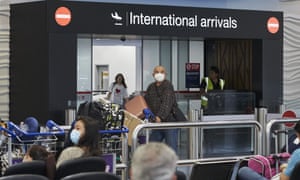
New Zealand confirmed its first coronavirus case Friday, saying a recent arrival from Iran who travelled to Auckland via Bali had tested positive.
Health officials said the person, aged in their 60s, was being treated in Auckland City Hospital.
“They are in an improving condition in isolation, in a negative pressure room to prevent any spread of the disease,” the health department said in a statement.
Officials said the person, reportedly a female New Zealand citizen, arrived in Auckland on Wednesday and family members went to the hospital after becoming concerned about the individual’s condition.
The officials urged any passengers on Wednesday’s final leg of the Emirates airline journey, which goes from Bali to Auckland, to contact authorities if they were concerned.
However, authorities downplayed the risk to the public saying the situation was being well managed.
“Although we have our first case of Covid-19, the chances of community outbreak remain low,” the statement said.
Earlier, health minister David Clark said New Zealand was introducing strict travel bans on arrivals from Iran similar to those already imposed on arrivals from China.
He said the action was taken after a spike in infections in Iran, where the virus has killed 26 people, the highest death toll outside China – and because of the unreliable information coming out of the Islamic republic.
“Obviously this situation in Iran is concerning, there is ongoing spread of the disease there and a large degree of uncertainty about the scale of the outbreak and the ability to contain it,” he told reporters.
“The information that’s coming out of Iran appears to be out of step with what’s coming out of other countries in terms of the death rate per incidence.”
Since you're here...
… we have a small favour to ask. More people, like you, are reading and supporting the Guardian’s independent, investigative journalism than ever before. And unlike many news organisations, we made the choice to keep our reporting open for all, regardless of where they live or what they can afford to pay.
The Guardian will engage with the most critical issues of our time – from the escalating climate catastrophe to widespread inequality to the influence of big tech on our lives. At a time when factual information is a necessity, we believe that each of us, around the world, deserves access to accurate reporting with integrity at its heart.
Our editorial independence means we set our own agenda and voice our own opinions. Guardian journalism is free from commercial and political bias and not influenced by billionaire owners or shareholders. This means we can give a voice to those less heard, explore where others turn away, and rigorously challenge those in power.
We hope you will consider supporting us today. We need your support to keep delivering quality journalism that’s open and independent. Every reader contribution, however big or small, is so valuable.
Comments
Post a Comment